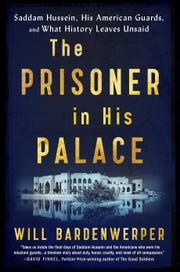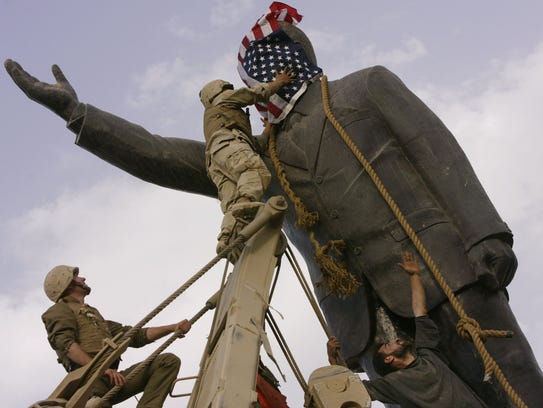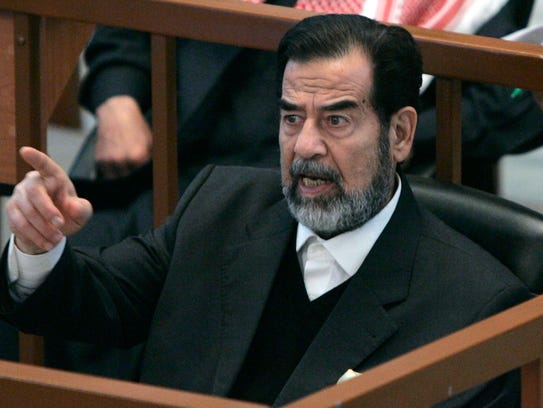
Stuck in his personal prison, Saddam Hussein seemed a benign presence to his 12-man band of U.S. guards who watched him as the former Iraqi dictator was tried for crimes against humanity. Smoking the Cuban Cohiba cigars, of which he had an inexhaustible supply, the avuncular Hussein amused his captors.
Then they remembered why they were there, the unspeakable horrors the dictator had perpetrated, encouraged or allowed, and how Hussein's name became synonymous with evil long before his American guards had even joined the military.
Author Will Bardenwerper deftly toggles from a nonstop supply of terror to occasional scenes of normal life throughout The Prisoner in His Palace: Saddam Hussein, His American Guards, and What History Leaves Unsaid (Scribner, 248 pp., ***½ out of four stars). Saddam Hussein liked to fish, Bardenwerper writes, but he often caught carp fed on "the dying bodies of enemies" that also gave the fish "a taste for human blood."
Hussein's guards would sit and laugh with him when he told stories about punishing his son, Uday, by setting all of his expensive sports cars on fire, and then they realized the punishment was for killing Hussein's half-brother and a crowd of innocent Iraqis.

In this file photo taken April 9, 2003, Cpl. Edward Chin of the 3rd Battalion, 4th Marines Regiment, covers the face of a statue of Saddam Hussein with an American flag before toppling the statue in downtown in Baghdad, Iraq. (Photo: Jerome Delay, AP)
"Baghdad under Saddam Hussein had clearly become a largely unrecognizable place where over-the-top cruelty was routine," writes Bardenwerper, a former Army Ranger, in a book that is a brief, but powerful, meditation on the meaning of evil and power.
Each of the 12 military policemen from Fort Campbell, Ky., wrestled with these questions while guarding Hussein. They had trained for many missions, but none of them expected to be watching the man whose alleged thirst for weapons of mass destruction triggered the U.S. invasions of Iraq in March 2003.
Some wanted to kill Hussein in his cell, while others lamented being stuck behind barbed wire and unable to fight in combat. Some wanted to transfer to other units. Many, grudgingly at first, began to admire him.
"The squad's youngest member, Tucker Dawson, quietly marveled, Out of all the people in the Army, how did I get chosen to do this?" Bardenwerper writes.

Ousted Iraqi President Saddam Hussein reacts in court while listening to the prosecution, during the Anfal genocide trial in Baghdad, Iraq, on Dec. 21, 2006. (Photo: Nikola Solic, AP)
Over the course of Hussein's detention and trial, each of the MPs would wonder the same thing. All watched with amusement or alarm the circus that surrounded the former dictator. Hussein would lash out in the courtroom against the United States and its lackeys in the new Iraqi government. Then he'd return to his cell, fire up another Cohiba and chat with guards in his broken, but surprisingly passable, English.
One guard said the man responsible for the deaths of hundreds of thousands of innocent people seemed "more like a grandpa." Another said he felt like he let Hussein down when the captured dictator was executed.
In the end, Hussein walked to the gallows on Dec. 30, 2006, wearing a white dress shirt and a dark overcoat, dried tears staining his cheeks. He taunted the small crowd about to watch him hang. Then, the floor dropped open, Hussein fell, and his neck snapped.
No comments:
Post a Comment